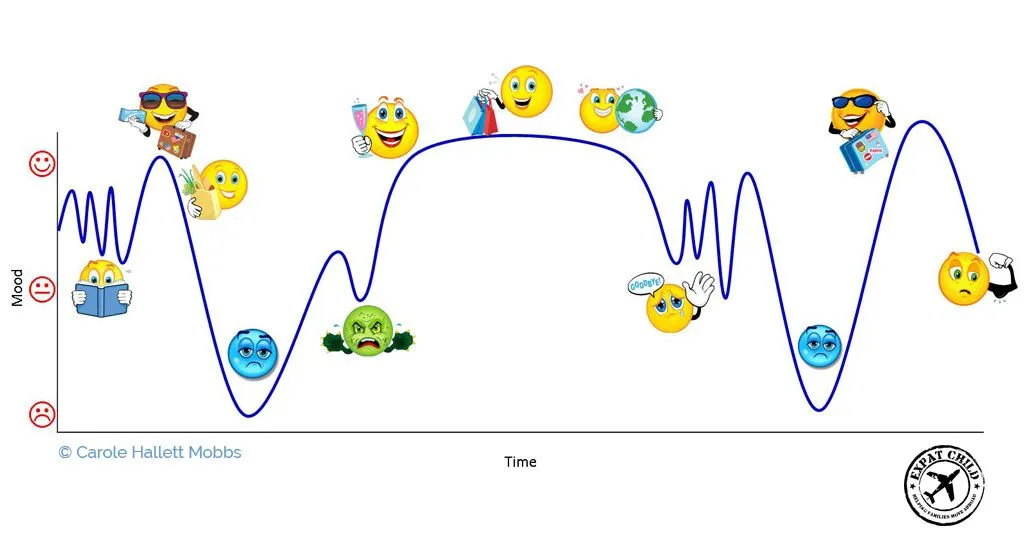What is the Honeymoon Phase of Culture Shock
The honeymoon phase of culture shock is the initial period of excitement, fascination, and positivity that many travelers and expats experience when they first arrive in a new country or culture. It’s a time of discovery and wonder, where everything feels new and exciting. This phase typically occurs in the early weeks or months of the experience, and it’s often characterized by a sense of adventure and a feeling that adjusting to the new environment will be easy. However, it’s crucial to recognize this as just the beginning, understanding that deeper challenges and adjustments will likely follow. This initial stage, while enjoyable, sets the stage for the subsequent phases of culture shock, each presenting unique hurdles and opportunities for personal growth and cultural understanding.
Understanding the Initial Euphoria
The euphoria experienced during the honeymoon phase is largely due to the novelty of the new environment. Travelers are often captivated by the sights, sounds, and experiences that are entirely different from what they’re used to. This initial excitement is fueled by curiosity and a desire to explore the new culture. People are often highly tolerant of minor inconveniences or cultural differences during this time, viewing them as part of the adventure. This positive outlook can be attributed to several factors, including the release of endorphins from the excitement of travel, the novelty of the situation, and the inherent human tendency to focus on positive aspects during the early stages of a new experience. It’s a time when individuals are more likely to overlook potential challenges, focusing instead on the positive aspects of their new surroundings and experience.
Common Experiences During the Honeymoon Phase
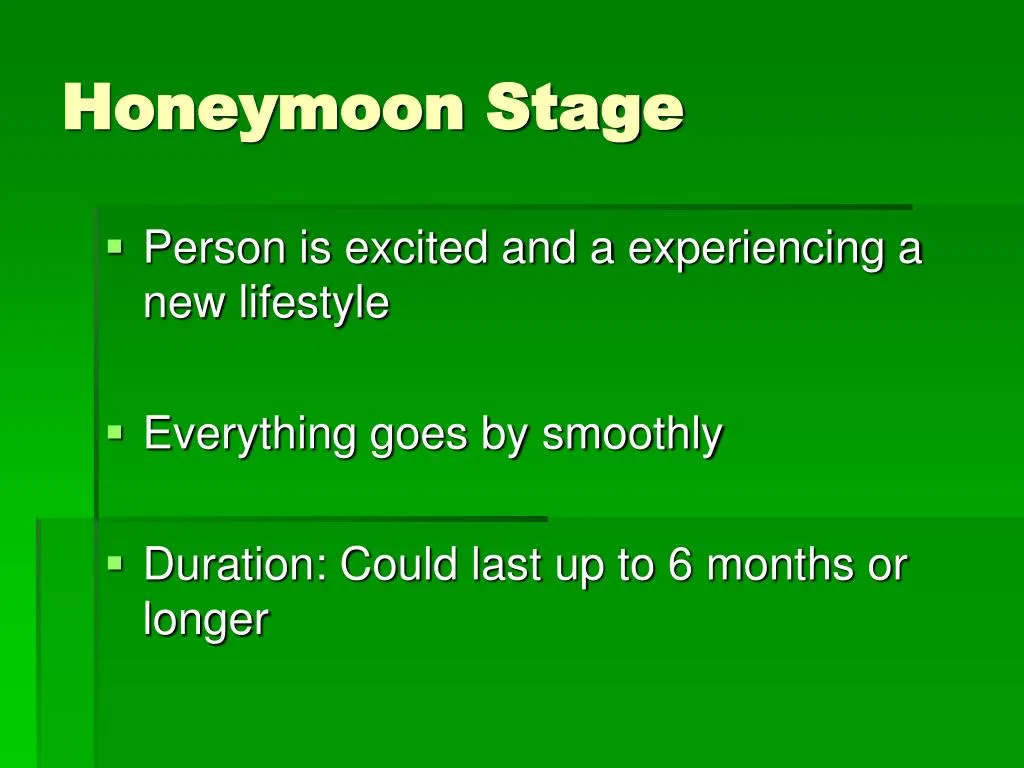
During the honeymoon phase, travelers often feel a strong sense of adventure and excitement. They are eager to explore their new surroundings, try new foods, and meet new people. The experience is filled with curiosity, and a willingness to embrace unfamiliar customs. Daily life feels like an exciting adventure. Interactions with locals are usually positive, with minimal language barriers or misunderstandings. The traveler might idealize aspects of the new culture, overlooking potential challenges or differences. There is a strong feeling of being a tourist and everything is seen with fresh eyes. It is a period of discovery, with a great emphasis on new experiences and a general feeling of joy and optimism about the future. This phase is marked by a high level of energy and enthusiasm for the new environment and everything it has to offer.
Feeling of Excitement and Curiosity
The primary emotion during the honeymoon phase is excitement, often coupled with a deep sense of curiosity. Everything is new and intriguing, from the local markets and historical sites to the everyday routines of the residents. Travelers are highly motivated to explore and discover new things, approaching each experience with a sense of wonder. This curiosity drives them to learn about the culture, the people, and the history of the new location. This heightened level of curiosity also makes travelers more receptive to new experiences, willing to try new foods, participate in local customs, and engage with the community. The feeling of excitement and curiosity makes the initial adjustment period much more enjoyable. This is a period of intense sensory input, with the brain constantly processing and integrating new information.
Initial Positive Impressions of the New Culture
The honeymoon phase is characterized by positive impressions of the new culture. Travelers often focus on the charming aspects, overlooking the potential downsides or challenges. They are more likely to be impressed by the unique traditions, the friendliness of the locals, and the beauty of the environment. Minor inconveniences are seen as part of the experience, and any cultural differences are viewed as interesting rather than frustrating. This positive attitude is supported by a focus on the similarities and the exciting aspects of the culture. It’s a time of idealization, where the new culture is often seen in a very favorable light. This positive lens helps make the initial transition more smooth, providing a foundation for future interactions. It is a time of building positive associations with the new environment.
Why the Honeymoon Phase is So Brief
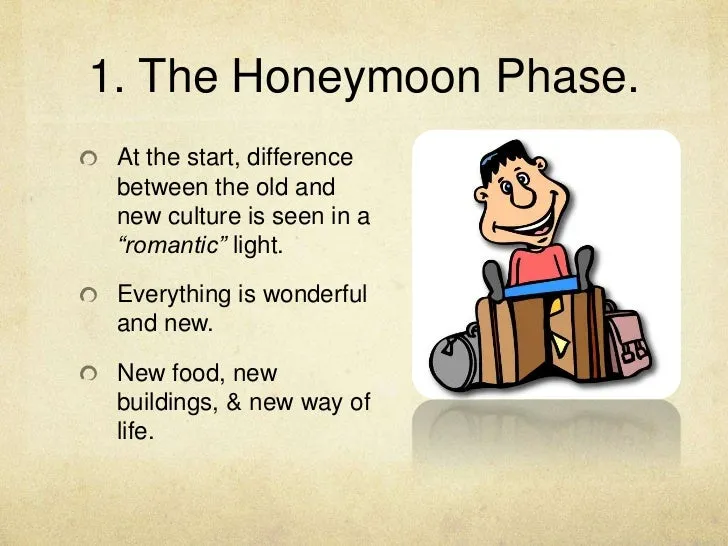
The honeymoon phase is typically short-lived because it is largely unsustainable. The initial excitement and novelty of a new culture eventually wear off as the realities of daily life set in. Minor inconveniences and cultural differences that were initially overlooked become more apparent. The constant exposure to new information and experiences can become overwhelming, leading to mental fatigue. The initial euphoria is also fueled by a surge of hormones and neurotransmitters that cannot be maintained indefinitely. As daily routines begin to form and familiarity sets in, the sense of adventure diminishes, making way for the challenges of deeper cultural understanding. The honeymoon phase is a time when the differences between the traveler’s home culture and the new culture are still primarily seen as exotic and interesting. However, as time goes on, these differences may become sources of frustration or stress.
The Contrast with Later Stages
The honeymoon phase contrasts sharply with the subsequent stages of culture shock. After the initial euphoria, travelers often enter a phase of increasing frustration and disillusionment. This stage, sometimes called the ‘crisis’ or ‘rejection’ phase, is characterized by feelings of isolation, homesickness, and resentment towards the new culture. Everyday tasks become more difficult, and small cultural differences can become major sources of irritation. Eventually, the traveler may begin to adjust, entering the ‘adjustment’ phase where they start to find ways to cope with the challenges and integrate into the new culture. The final phase, ‘adaptation’, involves a deeper understanding and acceptance of the new culture, where the traveler feels more comfortable and at ease. Each stage requires specific coping mechanisms and strategies.
Identifying the Honeymoon Phase
Recognizing the honeymoon phase is crucial for managing expectations and preparing for the challenges ahead. The most obvious sign is a general feeling of excitement and optimism. You will likely have a strong desire to explore and experience everything the new culture offers. Interactions with locals tend to be positive, and any difficulties are often viewed as interesting rather than frustrating. You may find yourself idealizing certain aspects of the new culture, overlooking potential issues. Be aware of the duration – it typically lasts from a few weeks to a few months. If you find yourself constantly comparing the new culture favorably to your home culture, this can also be a sign. Recognizing these indicators helps you be prepared for the inevitable transition into the next phases of culture shock and enables you to approach the challenges with a more informed perspective.
Recognizing the Signs of Cultural Adjustment
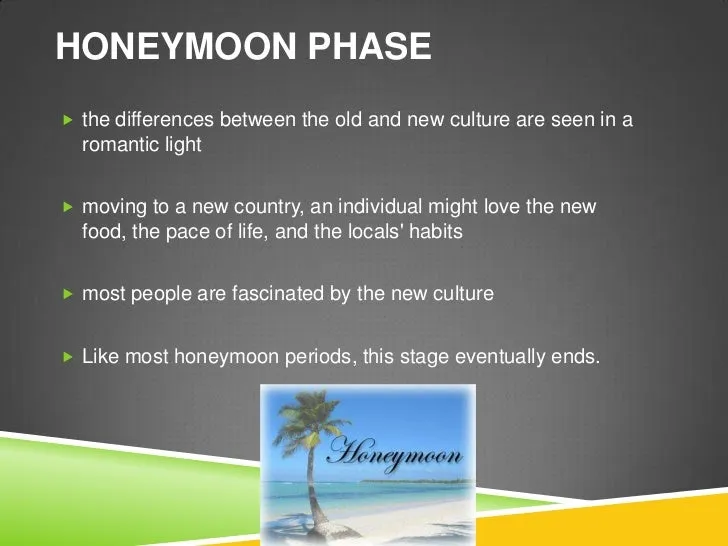
Recognizing the signs of the honeymoon phase involves being aware of your emotional and behavioral responses to the new culture. Pay attention to your emotional state. Are you consistently feeling happy, excited, and curious? Are you more patient and understanding than you usually are? Notice your behaviors. Are you actively seeking out new experiences and challenges? Do you find yourself idealizing the new culture or downplaying the differences? Are you willing to overlook minor inconveniences that would normally bother you? Journaling can be an effective tool, to track your thoughts and feelings over time. By identifying these signs, you can proactively manage your expectations and prepare for the transition to later phases of culture shock. Awareness helps you appreciate the honeymoon phase fully and lay the groundwork for a smoother overall adjustment.
The Illusion of Easy Adjustment
During the honeymoon phase, the illusion of easy adjustment is a common experience. It can be very easy to believe that you will effortlessly integrate into the new culture. You might assume that language barriers will quickly disappear, that you will easily make new friends, and that all aspects of daily life will fall into place seamlessly. This illusion is a result of the positive emotions and the novelty of the experience. The initial excitement and curiosity often lead travelers to overestimate their ability to adapt. This overconfidence can be detrimental in the long run, as the reality of daily life sets in. It is very important to be aware of the temporary nature of the honeymoon phase and be prepared for the challenges that come in later stages. Recognizing this illusion can help you approach the next stages with realistic expectations and avoid feeling discouraged when difficulties arise.
How to Make the Most of the Honeymoon Phase
Making the most of the honeymoon phase involves actively embracing the new experiences and preparing for the challenges that lie ahead. It’s a great time to explore your new surroundings, try new foods, and engage with the local culture. Take advantage of your enthusiasm by being open-minded, asking questions, and seeking out new experiences. However, also use this time to establish routines, learn the language, and start building a support system. While you’re enjoying the euphoria, begin to think about how you will manage the frustrations that will inevitably come later. By actively engaging and preparing, you can transition smoothly to the next phases. The honeymoon phase provides a unique opportunity to build a strong foundation for a positive and successful experience.
Embracing the New Culture
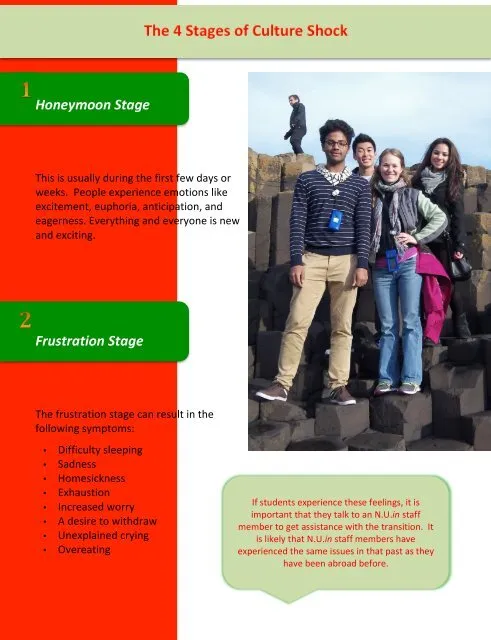
Actively embracing the new culture involves fully immersing yourself in the local customs, traditions, and way of life. This means stepping outside your comfort zone and trying new things. It includes eating local cuisine, participating in cultural events, and engaging in conversations with locals. Learn basic phrases in the local language to enhance your interactions and show respect for the culture. Be curious, and ask questions about local customs and history. Embrace the opportunity to experience life in a different way, even if it seems unusual or challenging. This proactive approach helps you build a deeper understanding and appreciation of the new culture. It fosters a sense of connection and belonging and enriches your overall experience.
Keeping a Journal
Keeping a journal is a highly effective way to document your experiences and track your emotional journey during the honeymoon phase. It is recommended that you take detailed notes about your daily activities, your thoughts, and your feelings. Describe your interactions with locals, the challenges you face, and the things that bring you joy. This can be useful to reflect on your experiences, identify patterns, and understand your emotional responses. Journaling also allows you to track the transition from the honeymoon phase to the next stages of culture shock. By reviewing your entries, you can gain insights into your personal growth and learn to adapt effectively. Over time, your journal can serve as a valuable record of your journey. This provides a sense of accomplishment and perspective.
Tips for Travelers During the Honeymoon Phase
Travelers in the honeymoon phase can take several steps to maximize their experience and prepare for the transition to later phases. The most important is to remain open-minded and curious. Be willing to embrace new experiences and learn from the culture. Establish a support system by connecting with other travelers, expats, or local residents. This provides a sense of community and helps you navigate challenges. Set realistic expectations about the adjustment process. Understand that difficulties will arise, and prepare to handle them. Learn the basics of the local language to improve communication and cultural understanding. Take time to relax and enjoy the positive aspects of your new environment. By following these tips, travelers can make the most of the honeymoon phase and be better prepared for the challenges that lie ahead.
Staying Open-Minded and Curious

Staying open-minded and curious is crucial throughout the culture shock experience, particularly during the honeymoon phase. Approach new experiences with a willingness to learn and understand. Avoid making judgments based on your own cultural norms. Instead, actively seek to understand the perspectives of others and the reasons behind their behaviors. Ask questions and show genuine interest in the local culture, customs, and traditions. Be willing to try new things, even if they seem unusual or unfamiliar. Embrace opportunities to learn from the locals and view challenges as opportunities for growth. By remaining open-minded and curious, you not only enhance your enjoyment of the honeymoon phase, but you also build a strong foundation for adapting to the challenges that will come later on.
Building a Support System
Building a support system is crucial for navigating the challenges of culture shock, even during the honeymoon phase. Connecting with others who understand the experience can offer valuable support. Seek out fellow travelers, expats, or local residents to share experiences and exchange advice. Join social groups, clubs, or communities that align with your interests. Cultivating these connections helps you feel less isolated and provides a sense of belonging. Having a network of support allows you to share your experiences, learn from others, and gain insights into the culture. In the coming phases, a support system will be a valuable resource, offering emotional support, practical advice, and a sense of community. Building relationships early on can enhance your overall experience and ease the transition through the different stages of culture shock.
Planning for Future Challenges
Planning for future challenges is a proactive step that can significantly ease the transition from the honeymoon phase to later stages of culture shock. Acknowledge that the initial excitement will eventually fade, and be prepared for feelings of frustration, homesickness, or disillusionment. Learn about the stages of culture shock to understand the emotional journey you will likely experience. Develop coping mechanisms, such as exercise, journaling, or meditation, to manage stress. Research resources available to expats or travelers, such as local support groups, counseling services, and language classes. Prepare for the practical challenges you may face, such as navigating the healthcare system, understanding local laws, and managing finances. By anticipating these challenges and creating strategies to address them, you can proactively manage your expectations and enhance your ability to adapt.
